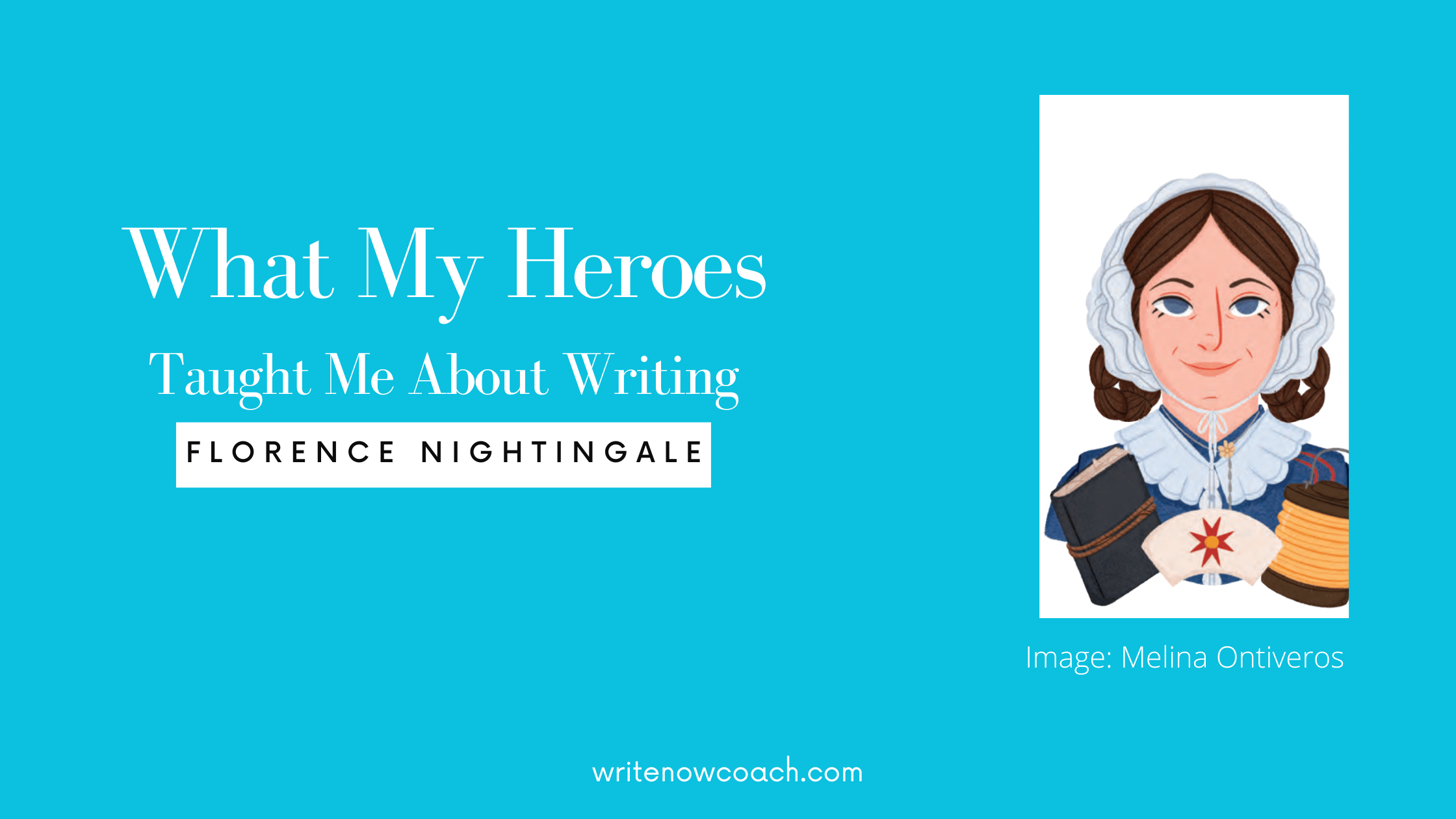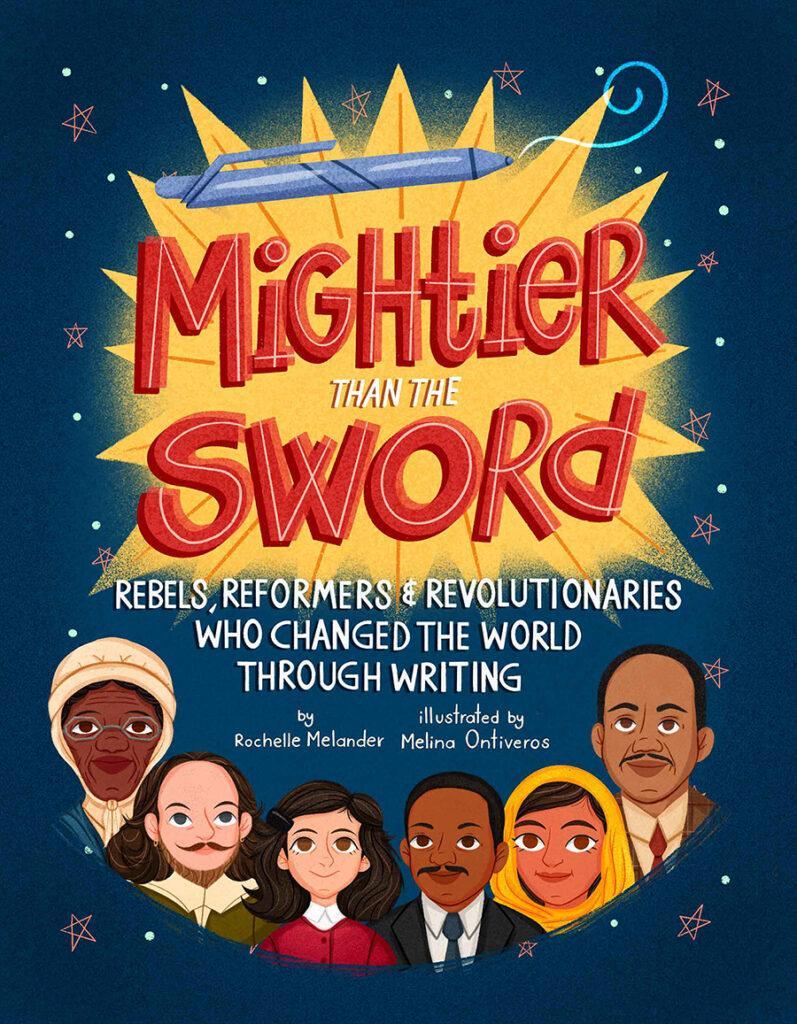What My Heroes Taught Me about Writing: Florence Nightingale
by Rochelle Melander
“I never lose an opportunity of urging a practical beginning, however small, for it is wonderful how often in such matters the mustard-seed germinates and roots itself.” ~ Florence Nightingale
Happy Women’s History Month! To celebrate, I’ll be writing about some of my favorite heroes and how they can teach you about writing. Today’s tip features Florence Nightingale. I’m so impressed by her innovative ways of sharing information—she inspires me to try new things.
Florence Nightingale is known as the founder of modern nursing. In her book, Notes on Nursing, she presented practical information and advice for nurses. But she was also a brilliant statistician and the first woman to be inducted into the Royal Statistical Society.
When Florence became a nurse, she used these recording skills to track everything from the nurses to supplies to the health of the patients. This data helped Florence see that the men were dying from poor sanitation instead of diseases. They could fix this! And they did.
Throughout it all, Florence Nightingale kept track. She established a standard of care, so that each soldier was treated in the same way. But she was haunted by what she couldn’t do, by all the men who had died before she got there. And by all the soldiers who might die if the British army did not change the way they did things.
Before Florence Nightingale got home from Scutari, she came down with Crimean Fever. Researchers think she had brucellosis from drinking contaminated milk. Although she recovered from the initial fever, the disease caused Florence to have chronic health issues for the rest of her life. She continued to work from bed, often sick and exhausted from the effects of the illness.
When the Queen asked for a report on their work, Florence’s detailed records helped her write the 830-page report. But would people actually read such a long report? Florence Nightingale created a much shorter memorandum with charts called, Mortality of the British Army at Home and Abroad, and during the Russian War. To explain the statistics, Florence Nightingale created a graphical display that is a pie chart, also called a coxcomb chart, that showed what happened to the soldiers during the war. It left no doubt that the men who died from the war did not die from their initial injuries, but from overcrowding, poor sanitation, and unhealthy ventilation. In 1858, Florence became the first woman admitted to membership in the Royal Statistical Society.
Throughout the rest of her life, Florence worked to ensure that both military and civilian hospitals practiced proper sanitation. She created hospital forms so that nurses and doctors at hospitals could keep track of admissions and discharges, diseases, and other information. She consulted with leaders in the United States and India on their hospitals. During the American Civil War doctors wrote to her about how to set up field hospitals.
She wrote more than 14,000 letters to aid in her purpose: making sure that people had safe health care.
A Writer’s Takeaway
+Florence wrote to support the work that mattered to her. Your life experience can be a great source of information and inspiration for your writing.
+Florence knew that her readers could not digest 830 pages of information, no matter how important it was. She created a shorter document with graphs to help her readers understand the gravity of the situation. How could you communicate your message so that your readers get it? Do you need to shorten it? Try a different format? Add charts?
+Florence persisted at her writing despite challenges, including readers not adopting her ideas and feeling unwell. Her secret? She had a strong sense of purpose. What purpose drives your writing? How does it help you persist in the face of challenges?
For more information on Florence Nightingale and other fierce women, check out my book, Mightier Than the Sword: Rebels, Reformers, and Revolutionaries who Changed the World through Writing










